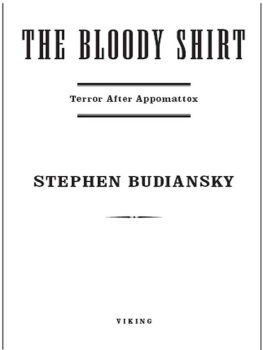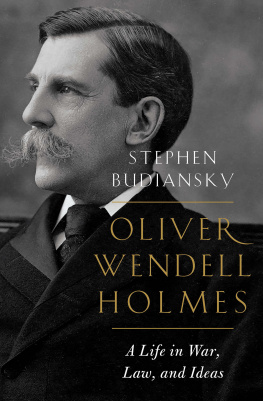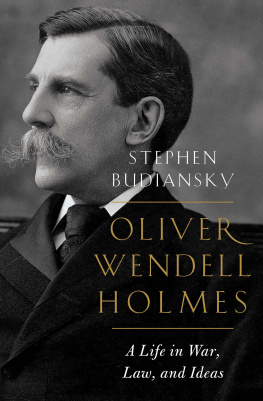Stephen Budiansky - Perilous Fight
Here you can read online Stephen Budiansky - Perilous Fight full text of the book (entire story) in english for free. Download pdf and epub, get meaning, cover and reviews about this ebook. publisher: Knopf Doubleday Publishing Group, genre: Adventure. Description of the work, (preface) as well as reviews are available. Best literature library LitArk.com created for fans of good reading and offers a wide selection of genres:
Romance novel
Science fiction
Adventure
Detective
Science
History
Home and family
Prose
Art
Politics
Computer
Non-fiction
Religion
Business
Children
Humor
Choose a favorite category and find really read worthwhile books. Enjoy immersion in the world of imagination, feel the emotions of the characters or learn something new for yourself, make an fascinating discovery.

- Book:Perilous Fight
- Author:
- Publisher:Knopf Doubleday Publishing Group
- Genre:
- Rating:4 / 5
- Favourites:Add to favourites
- Your mark:
- 80
- 1
- 2
- 3
- 4
- 5
Perilous Fight: summary, description and annotation
We offer to read an annotation, description, summary or preface (depends on what the author of the book "Perilous Fight" wrote himself). If you haven't found the necessary information about the book — write in the comments, we will try to find it.
Perilous Fight — read online for free the complete book (whole text) full work
Below is the text of the book, divided by pages. System saving the place of the last page read, allows you to conveniently read the book "Perilous Fight" online for free, without having to search again every time where you left off. Put a bookmark, and you can go to the page where you finished reading at any time.
Font size:
Interval:
Bookmark:
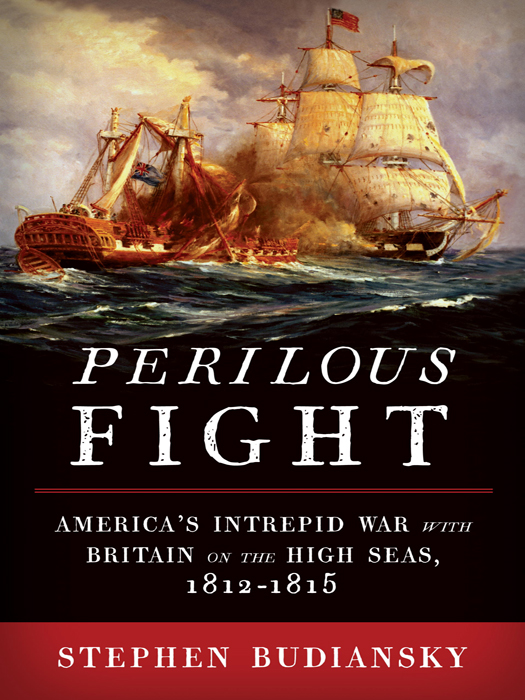
ALSO BY STEPHEN BUDIANSKY
History
The Bloody Shirt
Her Majestys Spymaster
Air Power
Battle of Wits
Natural History
The Character of Cats
The Truth About Dogs
The Nature of Horses
If a Lion Could Talk
Natures Keepers
The Covenant of the Wild
Fiction
Murder, by the Book
For Children
The World According to Horses
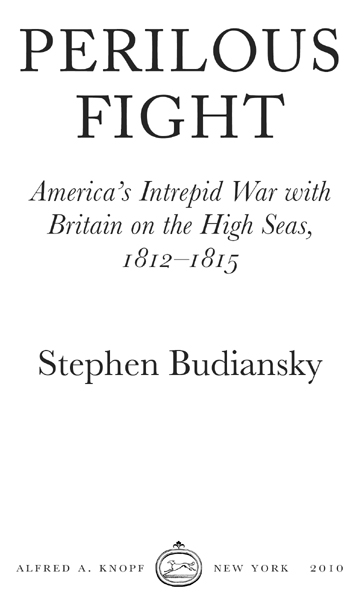
THIS IS A BORZOI BOOK
PUBLISHED BY ALFRED A. KNOPF
Copyright 2010 by Stephen Budiansky
All rights reserved. Published in the United States by Alfred A. Knopf, a division of Random House, Inc., New York, and in Canada by Random House of Canada Limited, Toronto.
www.aaknopf.com
Knopf, Borzoi Books, and the colophon are registered trademarks of Random House, Inc.
Maps and diagrams by Dave Merrill
Library of Congress Cataloging-in-Publication Data
Budiansky, Stephen.
Perilous fight: Americas intrepid war with Britain on the high seas, 18121815 / Stephen Budiansky.1st ed.
p. cm.
eISBN: 978-0-307-59518-8
1. United StatesHistoryWar of 1812Naval operations.
2. United StatesHistory, NavalTo 1900. I. Title.
E 360. B 87 2010
973.52dc22 2010037005
Jacket painting: Action Between USS Constitution and HMS Guerriere, 19 August 1812 by Anton Otto Fischer. Courtesy Miss Katrina S. Fischer. U.S. Naval Historical Center Photograph.
Jacket design by Joe Montgomery
v3.1_r1
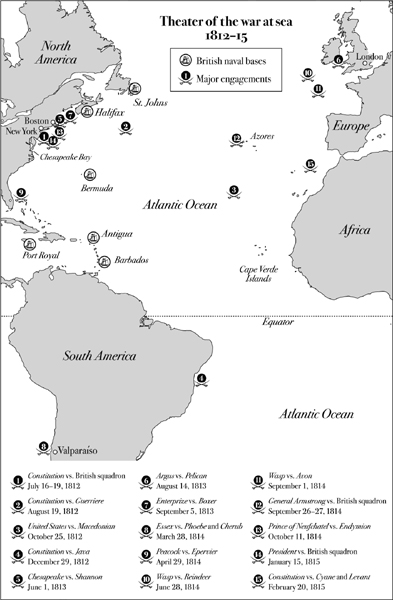
M ANY WARS have been called the forgotten war: those words have become a catchphrase much beloved of military historians seeking to excuse their obsession with obscurity. But rarely was a waror at least large parts of a warforgotten with such swiftness, and such mutual determination, as the War of 1812. America and Britain both had things they wanted to forget, and forget quickly, about this often brutal three-year fight that raged across half a globe, from the wilderness of the northwestern forests to the capital cities of Canada and the United States, from the seas off Chile to the mouth of the English Channel. The forgetting began almost as soon as the last shot was fired, and it has been going on ever since.
It would be decades before the war even had a name; until the 1850s this war that left thirty thousand dead, that pushed the fledgling American republic to the brink of bankruptcy and secession, that brought down some of the loftiest military reputations of the Revolutionary generation to ruin and disgrace, that saw hundreds of American citizens executed by firing squad for desertion, was most often just called the late war or the late war with Great Britain. The War of 1812 came into widespread use only after the Mexican War of 184648 usurped the place of the late war in American memory. It proved a memorable phrase, yet like the late war, it sidestepped any memory of why the war had been fought, or even whom it had been fought against.
Americans above all wanted to forget the disastrously mismanaged land campaign, which had been marked from the start by miscalculation, blunders, incompetence, and monumental overconfidence. No one had escaped humiliation; the wisest men had predicted easy success and quick victory, and had wound up with egg on their faces. A month into the war Thomas Jefferson, from his quiet retirement at Monticello, had smugly assured a fellow Republican politician that the acquisition of Canada this year, as far as the neighborhood of Quebec, will be a mere matter of marching. One more year, Jefferson added, would bring the final expulsion of England from the American continent.
Two weeks after Jeffersons pronouncement, in the very opening of the offensive against British forces to the north, the American brigadier general William Hull surrendered his entire army at Detroit without firing a shot. He was subsequently court-martialed, convicted of cowardice, and sentenced to be shot by a firing squad until President Madison granted him a reprieve based on his meritorious service in the Revolution. D ISASTER ON DISASTER ON LAND read the headlines in the anti-administration newspapers that winter as the debacles of the wars opening months were repeated again and again.
Along with the military blunders were a string of political embarrassments that both American political parties were eager to disown in the wars aftermath. Not until the Vietnam War a century and a half later would a decision to go to war so divide the nation, and impassioned feelings had led to many injudicious words and ill-considered stances. The Federalists, the party of Alexander Hamilton and John Adams, whose stronghold was mercantile New England, had voted in Congress to a man to oppose the declaration of war, and were unsparing in their bitter denunciations. Sermons preached week after week from northern Congregational pulpits added religious censure to the torrent of inflammatory words, warning that any accomplice in the wickedness of Mr. Madison in such an iniquitous and unjust war would become a very murderer in the sight of God, the blackest of crimes on his conscience, the guilt of blood upon his soul. By the end of 1814 disunion was being bruited in the northeastern states. But with the return of peace all such talk simply sounded wild, if not outright treasonous, and the Federalists desperately wanted to bury the recent political past.
The Republicans had their own partisan excesses to live down, and they too quickly contracted a convenient case of amnesia, forgetting how for years they had denounced the very existence of an American navy as an evil of evils, a road to ruinous tyranny, an overweening Federalist ambition incompatible with the common-man values of a free republic. On the very brink of the war that they were clamoring for, the Republican Congress had voted down a modest naval expansion that the Federalists had strongly backed.
And so the Federalists had opposed the war, the Republicans had opposed the navy, and so the one thing they could agree on after it was all over was how gloriously the tiny American navy had triumphed. For decades afterward the whole complex history of the war was reduced to a simple romantic tale of patriotic pride and derring-do. The stories of a few glorious single-ship actions fought by heroic American captains would be the story of the war to generations of Americans. The glory was real and merited, yet it was a only a fraction of the story of the whole war, a fraction even of the story of the whole naval war. But it was the part that would command almost all the attention whenever the War of 1812 was periodically revisited by popular writers, notably in 1882 by a young Theodore Roosevelt (who nearly two decades later would become assistant secretary of the navy) and in 1956 by the novelist C. S. Forester (who two decades earlier had begun to write his Horatio Hornblower stories).
The one thing Americans could agree upon was precisely the one thing Great Britain wanted to forget: the humiliations her all-powerful Royal Navy had sustained on the high seas, the astonishing wounds to her prestige and pride she had suffered at the hands of the same upstart rival for the second time in thirty years. And so this second war with America became little more than a footnote to the contemporaneous, and much more important, Napoleonic Wars. In Britain too it became ever after a war without a real name, to this day something to be found in scholarly indexes under the musty title Anglo-American War, 181215. In his monumental fifteen-hour-long television documentary of the history of Britain, the British historian Simon Schama devoted less than one sentence to the war. Ask even a well-educated Briton today about the War of 1812 and you are likely to get a blank stare followed by a question about whether it has something to do with the piece by Tchaikovsky.
Font size:
Interval:
Bookmark:
Similar books «Perilous Fight»
Look at similar books to Perilous Fight. We have selected literature similar in name and meaning in the hope of providing readers with more options to find new, interesting, not yet read works.
Discussion, reviews of the book Perilous Fight and just readers' own opinions. Leave your comments, write what you think about the work, its meaning or the main characters. Specify what exactly you liked and what you didn't like, and why you think so.

